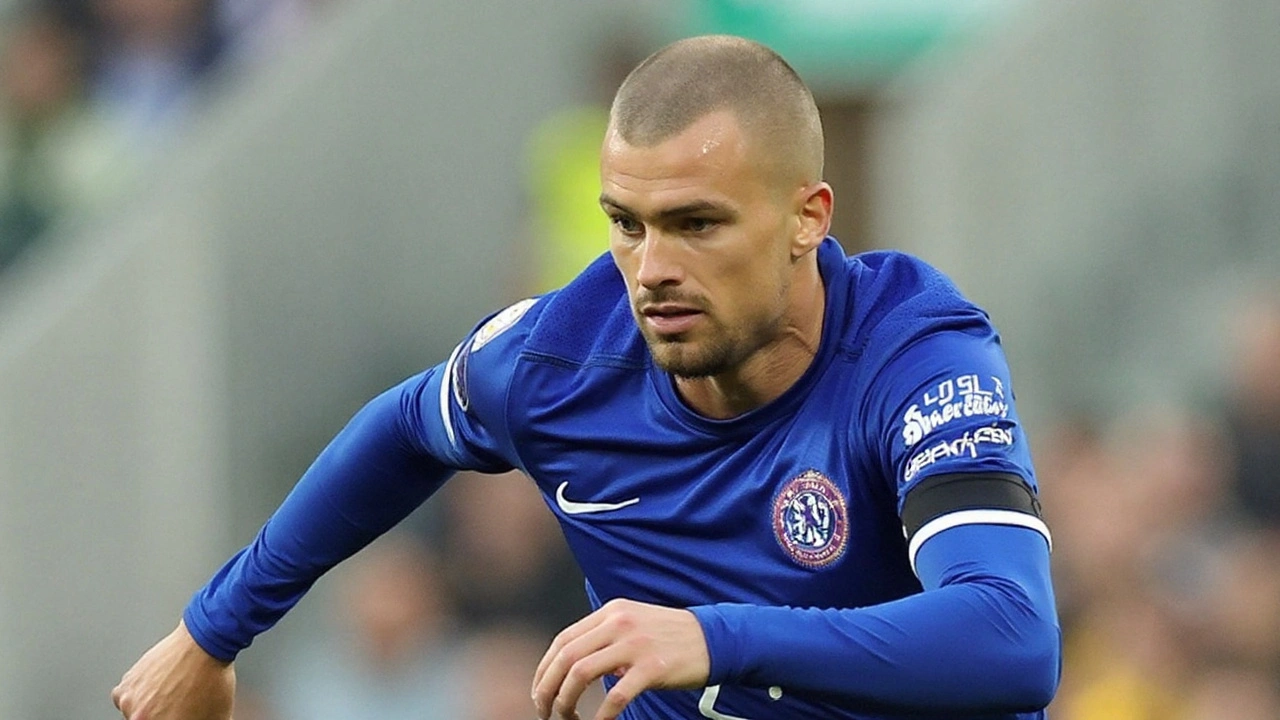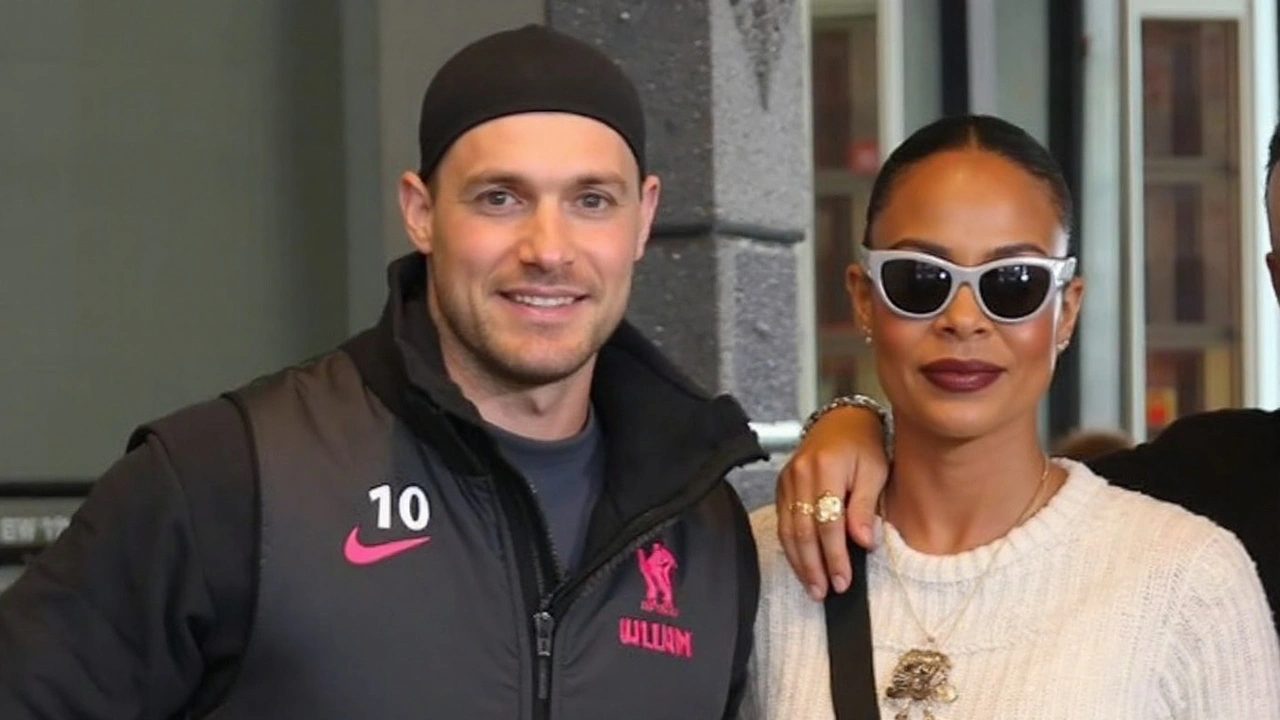Why Mudryk could collect a medal
Mykhailo Mudryk is suspended, but he still ended the night with a medal around his neck. That sounds odd until you look at how UEFA handles medals and who counts as a contributor during a European campaign.
The Chelsea winger has been under a provisional suspension since November after a failed drugs test. That bars him from playing and from taking part in matchday activity while the case runs its course. It does not wipe out the minutes he already played in the Europa Conference League this season.
Mudryk did plenty before the ban. He made four appearances in the league phase and featured in both legs of the qualifying playoff against Servette. Across those games, he stacked up three goals and three assists. That output helped push Chelsea into the latter stages and, in sporting terms, is exactly the kind of contribution clubs tend to reward when medals are handed out.
Here’s the key bit on medals. UEFA provides a set of winners’ and runners-up medals to each finalist—commonly around 40—and the club decides how to distribute them among players and staff. There’s no rule saying a medal can only go to those on the pitch in the final. Clubs routinely recognize anyone who played a part earlier in the tournament, even if injury, suspension, or selection kept them out of the showpiece.
That’s why Mudryk qualified, regardless of his availability for the decider. He was not seen on the pitch during Chelsea’s celebrations in Wrocław, but he appeared later in Instagram Stories posted by teammates, wearing a medal and sharing images of the trophy. It’s not clear whether that was his officially allocated medal or one briefly borrowed for photos. Either way, by UEFA practice and club custom, he had earned the right to be listed among the winners.

The night that reshaped Chelsea’s season
Chelsea beat Real Betis 4-1 in the final in Wrocław, flipping a rough start into a commanding finish. Betis struck inside nine minutes, but Enzo Maresca’s team took control after the break. Cole Palmer, Jadon Sancho, and Moisés Caicedo were on the scoresheet as the Blues blew the game open in the second half.
The result delivered more than a trophy. It completed Chelsea’s clean sweep of modern UEFA club titles—Champions League, Europa League, and now the Conference League—making them the first club to win all three since the third competition was introduced. For a squad still building an identity under a new manager, that matters.
The lineup told its own story. Marc Cucurella, at 26, was the oldest starter. Chelsea became only the second team to begin a major UEFA final without a player aged 27 or older. A youthful side handled the pressure and the swings of a final, which is exactly the kind of experience that tends to carry over into next season.
There’s also a practical boost. The Conference League title brings automatic qualification for the Europa League group stage. That guarantees European nights and a bigger stage for Maresca to test the depth he leaned on throughout this run.
For Mudryk, the moment is complicated but clear in sporting terms. A provisional ban is not a verdict. Under anti-doping rules, it’s a step taken while the case is investigated, with the right to a hearing and, where relevant, B-sample analysis. He can’t play until the process is resolved, but his performances from earlier in the campaign still count in the record and in the club’s internal honors.
UEFA’s medal policy aligns with that logic. The organization doesn’t police who gets each medal inside a squad. It supplies the batch; the club recognizes the contributors. Additional medals can be requested if needed. That is why injured players, mid-season departures, and suspended contributors often end up with medals if the club believes they earned them on the road to the final.
Some fans asked how a suspended player could be pictured with a medal so quickly after the final whistle. The simplest answer is often the right one: medals circulate during celebrations. Players swap for photos. Staff and squad members take turns before they’re boxed up, logged, and distributed. Whether Mudryk’s was his official medal or a teammate’s for the camera, his eligibility wasn’t in doubt.
The wider Chelsea story is about a project clicking at the right time. Maresca leaned into youth, pressed high, and trusted ball carriers to break lines. When the second half opened up in Wrocław, that plan suffocated Betis. Palmer’s composure, Sancho’s direct running, and Caicedo’s timing from deep showed a team playing with clarity and confidence.
Finishing a European campaign with a 4-1 win and a historic milestone gives the club a narrative anchoring point heading into the summer window. It also resets the expectations. A squad that young, with medals in their pockets and a continental route back into the Europa League, won’t be graded on potential for long. They’ll be judged on delivery.
As for Mudryk, the case will play out on its own timeline. Until then, his situation doesn’t change the football fact: he helped get Chelsea to the latter stages, and the medal—however it reached his neck on the night—reflects that contribution.

Kara Withers
September 20, 2025 AT 18:47UEFA’s medal distribution is intentionally inclusive – any player who contributed during the campaign can be recognised, regardless of whether they appear in the final match. Clubs receive a set number of medals and allocate them at their discretion, which is why you’ll see suspended or injured players shown with a medal in post‑match photos.
boy george
September 28, 2025 AT 10:47The nuance is obvious: a medal reflects contribution, not presence.
Cheryl Dixon
October 6, 2025 AT 02:47One could argue that the symbolism of a medal transcends mere participation; it becomes a token of shared destiny. Yet the reality is that clubs wield discretion, turning the accolade into a diplomatic gesture. So while the formal rules permit inclusion, the actual decision often mirrors internal politics. In this sense, Mudryk’s medal is both a recognition of effort and a strategic narrative device.
Charlotte Louise Brazier
October 13, 2025 AT 18:47It’s great to see clubs rewarding every squad member, especially the youngsters who’ve helped push the team forward. The medal isn’t just metal; it’s a morale booster for the entire roster.
Donny Evason
October 21, 2025 AT 10:47Exactly! The youth‑centric approach has paid dividends, and acknowledging contributors like Mudryk reinforces a culture of inclusivity. It signals that every effort, even if later marred by controversy, is valued in the collective achievement.
Phillip Cullinane
October 29, 2025 AT 01:47When dissecting the procedural framework governing UEFA’s medal allocation, one must first acknowledge the bifurcation between regulatory guidelines and club‑level discretion. The governing body stipulates a baseline quota of medals per finalist, typically around forty, which serves as a logistical substrate for subsequent distribution. From there, the internal hierarchy of the club-coaching staff, medical personnel, and player liaison officers-engages in a multivariate decision‑making process. Variables include minutes logged, statistical contribution metrics such as Expected Goals (xG) and Expected Assists (xA), as well as less quantifiable factors like leadership presence in the locker room. Moreover, contractual clauses may implicitly mandate recognition for players who meet predefined performance thresholds, thereby intertwining legal considerations with ceremonial customs. In Mudryk’s case, his four appearances and three‑goal, three‑assist tally constitute a significant offensive output, aligning with the club’s internal KPI for offensive impact. Consequently, the allocation of a medal to him is not merely an act of goodwill but a data‑driven acknowledgment of his measurable influence on the campaign’s trajectory. The procedural etiquette also encompasses a sequential hand‑over of medals: initial distribution to pivotal starters, followed by secondary rounds for rotational players and support staff. This cascade ensures that even suspended or injured members receive symbolic parity, preserving squad cohesion. Finally, the public relations dimension cannot be ignored; showcasing a comprehensive medal roster reinforces a narrative of collective triumph, which in turn bolsters fan engagement and commercial endorsement opportunities. Thus, the ostensibly simple act of awarding a medal encapsulates a sophisticated matrix of regulatory compliance, performance analytics, contractual obligations, and brand strategy-all converging to legitimize Mudryk’s place among the medalists.
Janie Siernos
November 5, 2025 AT 17:47Disciplinary actions should not eclipse the fact that players are role models, and celebrating their achievements while under suspension sends a conflicting message to aspiring athletes.
joy mukherjee
November 13, 2025 AT 09:47It’s a tough balance, but acknowledging the on‑field contribution doesn’t mean we ignore the off‑field responsibilities 😊.
Rob Chapman
November 21, 2025 AT 01:47From a procedural standpoint, the club’s prerogative to distribute medals is clearly outlined, and Mudryk’s inclusion aligns with that established practice.
Delaney Lynch
November 28, 2025 AT 17:47Indeed, the policy is explicit, however, the human element adds depth-recognizing contributors, even those sidelined, sustains team unity, and that’s crucial for future campaigns.
Nicholas Mangraviti
December 6, 2025 AT 09:47Medals honor effort, not just presence.
Jared Greenwood
December 14, 2025 AT 01:47From a nationalist perspective, it’s vital that English clubs maintain their prestige on the continental stage, and awarding medals to all contributors reinforces the collective pride of English football.
Sally Sparrow
December 21, 2025 AT 17:47While the sentiment sounds inclusive, the reality is that such gestures can dilute the significance of a medal, turning it into a filler token for anyone on the roster, regardless of merit.
Eric Yee
December 29, 2025 AT 09:47The club’s decision reflects a broader cultural ethos where every cog in the machine gets its due, fostering a sense of belonging that transcends individual controversy.
Sohila Sandher
January 6, 2026 AT 01:47Great job to the squad, the young ones especially! It’s alll about that team spirit.
Anthony Morgano
January 13, 2026 AT 17:47Absolutely love seeing the whole group celebrated – it shows the club values every player’s hustle 😊.
Holly B.
January 21, 2026 AT 09:47It is commendable that the organization adheres to its stipulated medal policy, thereby upholding institutional fairness.
Lauren Markovic
January 29, 2026 AT 01:47Cool to see the club giving credit where it’s due – those medals mean a lot to the players 🤩.